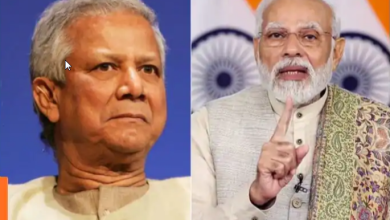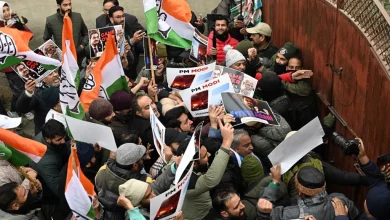No justification not to grant bail to Sharjeel Imam in sedition case: Delhi HC

New Delhi: The Delhi High Court has observed that there is no justification not to grant bail to student activist Sharjeel Imam in connection with a 2020 communal riots case.
The Kahsmir Media Service reported that the Court also remarked that the prosecution failed to give any “justifiable reason” to not grant bail to Sharjeel Imam in 2020 communal riots case involving allegations of sedition and unlawful activities but the trial court got “swayed by the enormity of the allegations” while denying him the relief.
A bench headed by Justice Suresh Kumar Kait, which granted bail to Imam on May 29, more than four years after he was arrested, said in its recently uploaded order that the mere fact of the allegations being serious cannot be a ground to decline bail under section 436-A of the Code of Criminal Procedure, Indian media reported.
The court asserted that CrPC section 436-A was a benevolent provision which was enacted with the idea that no undertrial prisoner be detained in jail beyond half of the maximum sentence provided for such offences unless there are rational and logical reasons to direct otherwise.
“In the case in hand, we do not find any justifiable reason which could have compelled the court from not granting the relief,” it said in the recently uploaded order.
“Learned Trial Court got swayed by the enormity of the allegations, observing that he had made inflammatory speeches which resulted in riots, the bail was declined,” the bench, also comprising Justice Manoj Jain, said.
According to the prosecution, Imam made speeches at the Jamia Millia Islamia on December 13, 2019, and the Aligarh Muslim University on December 16, 2019, where he threatened to cut off Assam and the rest of the northeast from the country.
In 2022, the trial court framed charges against him under sections 124A (sedition), 153A (promoting enmity), 153B (imputations prejudicial to national integration), 505 (statements conducing to public mischief) of the IPC and section 13 (punishment for unlawful activities) of the Unlawful Activities (Prevention) Act, an anti-terror law.
The activist’s lawyer had contended in the high court that material witnesses were yet to be examined in the case and the trial in the FIR cannot be concluded in view of the Supreme Court direction keeping in abeyance the operation of IPC section 124A (sedition).
While granting the relief, the court rejected the Delhi Police’s objection that the delay was solely attributable to Imam as it was at his instance that the trial was stayed in the year 2022.
The court asserted that any accused who chooses to avail legal remedy cannot be blamed for causing delay and in the present case, the stay order was given on the basis of joint statements of parties and it was not further challenged by the State.








